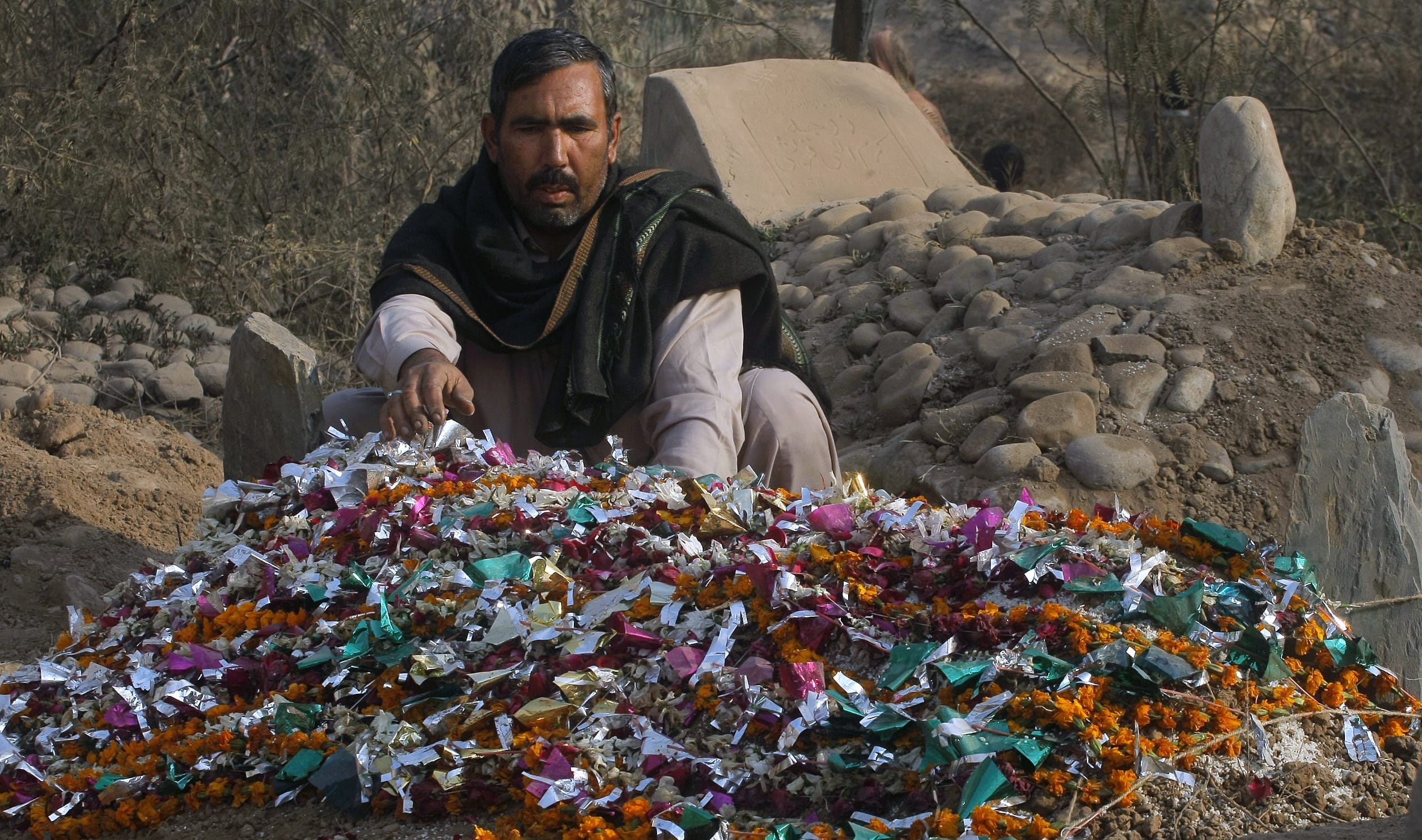PESHAWAR, Pakistan — One of the gravediggers at Peshawar’s largest graveyard has a rule. He says he never cries when he buries the dead. He’s a professional, he says.
But as the dead bodies — mostly children — started coming in this week from a school massacre that killed 148 people, he began to weep.
“I have buried bodies of the deceased of different ages, sizes, and weights,” said Taj Muhammad. “Those small bodies I’ve been burying since yesterday felt much heavier than any of the big ones I’ve buried before.”
Muhammad spoke during a break from the digging, as he drank green tea with one of his colleagues and his two sons who work with him in the Rahman Baba graveyard, named after a beloved Sufi poet, in the northwestern city of Peshawar.
Wearing a faded shalwar kameez, a traditional dress of baggy pants and a long tunic, Muhammad, 43, was covered in dust from a freshly dug grave.
The massacre Tuesday horrified Pakistanis across the country. The militants, wearing suicide vests, climbed over the fence into a military-run schooland opened fire. The bloodshed went on for hours until security forces killed the attackers. The Pakistani Taliban claimed responsibility.
For hours after, the dead, wrapped in white sheets, were brought to the cemetery. In Islam, the dead are generally buried quickly, so most funerals were held Tuesday and Wednesday.
This was the worst terrorist attack in years but it was hardly the first in Peshawar.
Muhammad has buried some of the dead from those past attacks as well, like the Mina Bazaar bombing in 2009 that killed 105 people, and the Khyber Bazaar bombing, also in 2009, that killed nearly 50.
But Tuesday’s bodies were hard to take.
For the first time, “I couldn’t control my tears. I cannot explain, but I wept. I know it was against the rules of our profession but it was the moment to break the rules,” the father of eight said.
Muhammed said he usually charges 2,000 to 5,000 rupees — about $20 to $50 — to dig a grave. And it is money he needs. In the past six or seven months, his income has dropped with fewer bodies to bury as violence fell. Until this week.
But he didn’t charge anyone to bury the victims of Tuesday’s attack.
It was like burying his own children, he said. “How could I ask or receive money for making the grave of my own child?”



